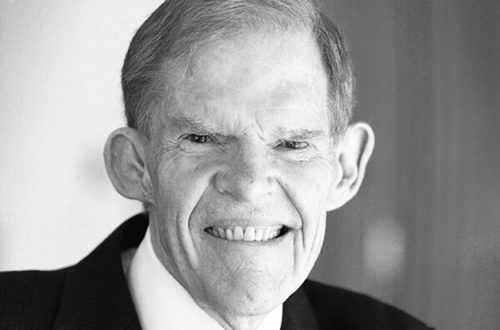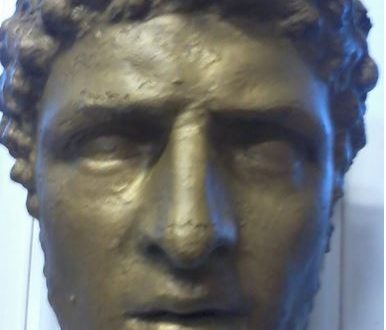Good News – 2 Kings 3
The Setting
The events of 2 Ki 3 happen in the mid 9th century BC. Saul, David, and Solomon’s united Israel has fallen apart. It is now divided into the Southern Kingdom of Judah with its capitol in Jerusalem and the Northern Kingdom of Israel with its capitol in Samaria. The Kings of both kingdoms are bad by degrees, though the Northern Kingdom just seems to have one bad king after another. Though the two kingdoms occasionally battle each other, they are united for this chapter. While the two kingdoms may not get along consistently, they are still a very powerful force in the region and command the respect and tributes of their neighbors.
The Setting
The events of 2 Ki 3 happen in the mid 9th century BC. Saul, David, and Solomon’s united Israel has fallen apart. It is now divided into the Southern Kingdom of Judah with its capitol in Jerusalem and the Northern Kingdom of Israel with its capitol in Samaria. The Kings of both kingdoms are bad by degrees, though the Northern Kingdom just seems to have one bad king after another. Though the two kingdoms occasionally battle each other, they are united for this chapter. While the two kingdoms may not get along consistently, they are still a very powerful force in the region and command the respect and tributes of their neighbors.
The Neighborhood
Edomlies South of Judah and the Dead Sea. Moab lies East of the Dead Sea, above Edom and below Israel (Northern Kingdom). The areas South and East of the Dead Sea are mostly harsh desert.
The People
Elisha is the principle prophet of this era. In fact Elijah leaves in a chariot of fire for Heaven in the previous chapter. Elisha lived in the area of Sameria about the time of this chapter (2 Ki 2:25).
Ruling from Samaria is King Jehoram (2 Ki 3:1). He displeased the Lord, but wasn’t as bad as his parents (vv2-3).
In Jerusalem King Jehoshaphat ruled. He answered yes when Jehoram asked for help to fight Moab.
The name of the King of Edom isn’t mentioned, but even the Edomite King participates in the confrontation with Moab (v9).
King Mesha ruled the land of Moab (v4). He bred sheep, but paid a large annual tribute to Israel in the form of lambs and ram wool.
The Reason for the Confrontation
Ahab formerly ruled Israel. Mesha feared Ahab, but when Ahab died he decided he wasn’t going to pay the tribute to his son Jehoram (v5). Of course Israel was not only faced with loosing a huge windfall income from Moab, Jehoram personally was loosing face against a neighbor that he was accustomed to viewing as a servant state to Israel. After all, what slave owner wouldn’t rise up against a resistant slave? If this doesn’t make sense, just look at America’s 19th century.
The Plan of Attack
Jehoram starts by enlisting the help of Jehoshaphat and the king of Edom (vv7-9). They discuss the matter and Jehoram decides the best attack route is to pass South of the Dead Sea across Edomite territory to reach Moab lands (v8).
Dry Run
The armies go as planned. They march 7 days through the desert around the Dead Sea (v9). The problem is, there’s not much water in the desert and certainly not enough for a whole army. By the 7th day things were getting serious.
Defeatism
Jehoram whines that God has lead them out there only to become the victims of their enemy, Moab (v10). This guy obviously didn’t have much faith in God or the promises He made to His people.
Bright Ideas
Jehoshaphat at least has the presence of mind and enough faith to seek a prophet of God to learn God’s will (v11). Elisha turned up in Jehoram’s group (2 Ki 3:11). Jehoshaphat knew of Elisha and his service to Elijah so the three kings decided to go seek Elisha’s counsel (v12).
In The Mood
Elisha told Jehoram he should go consult the prophets of his parent’s idols. I suspect he said this with ample sarcasm. In his desperation Jehoram begged Elisha to speak (v13). Elisha only acquiesced to prophesy because he respected Jehoshaphat, king of Judah (v14). Apparently Elisha was pretty annoyed because he asked for a musician to come and help him get in the spirit, so to speak (v15).
YHWH Speaks
1Ki 3:16-20 And he said, “Thus says the Lord, ‘I will make this dry streambed full of pools.’ For thus says the Lord, ‘You shall not see wind or rain, but that streambed shall be filled with water, so that you shall drink, you, your livestock, and your animals.’ This is a light thing in the sight of the Lord. He will also give the Moabites into your hand, and you shall attack every fortified city and every choice city, and shall fell every good tree and stop up all springs of water and ruin every good piece of land with stones.” The next morning, about the time of offering the sacrifice, behold, water came from the direction of Edom, till the country was filled with water. God basically said: so you want water, I’ll give you water. I’ll give you a miracle to flip your wig. It won’t rain, you won’t even get a breeze. But you’ll get your water. Then you’re going to go kick some Moabite butt. The next morning God fulfilled His end of the promise by bringing the water.
Bad Impression
While the other kings were contending with Elisha, the Moabites got word the they were advancing so they started setting up their defenses (v21). The next morning when the water appeared, reflections from the pools looked like blood to the distant lookouts of the Moab warriors (v22). They figured the incoming kings must have fought among themselves so they decided to go pick up the spoils left by the dead (v23).
Oops
The Moabites thought they could walk in and pick up all the goodies. Instead they walked into the sleeping camp of the very well armed Israel. They Israelis woke up to the dawn intrusion and attacked (v24). The Moabites ran, but Israel’s forces kept advancing. They wrecked the Moabite fields, plugged springs, knocked down fruit trees, and before long the only major enemy fortress left was under heavy attack (v25)
Desperate Move
When Mesha the king of Moab saw he was about to get wiped out he took 700 swordsman and tried to break out of the fortress, but the attempt failed (v26). Seeing loss was imminent he chose to try one last desperate gambit. He took his own son, his only son who was supposed to be the next king, and sacrificed him as a burnt offering on the wall for all Israel to see.
The End Result
2 Ki 3:27 (ESV) Then he took his oldest son who was to reign in his place and offered him for a burnt offering on the wall. And there came great wrath against Israel. And they withdrew from him and returned to their own land. There is some debate as to the meaning of this verse. It reads essentially the same in the KJV, NIV and the NJPS (Jewish Study Bible). In The Living Bible (TLB) it reads: Then he took his oldest son, who was to have been the next king, and to the horror of the Israeli army, killed him and sacrificed him as a burnt offering upon the wall. So the army of Israel turned back in disgust to their own land. The TLB translation appears to make sense, but it certainly doesn’t sound anything like the other versions.
After consulting three study bibles and 5 translations and prayerfully asking the Spirit for understanding about this passage I have a few thoughts:
Certainly having to watch a man burn his own son for a sacrifice was a horrendous thing for the army of Israel and their allies. It would have probably been as bad for them as for the remnants of the army of Moab. The significance of a father sacrificing a son would have certainly been obvious to all of Israel, Judah, and even Edom (Edomites were also descendants of Abraham).
It also seems based on the rest of the chapter that there wasn’t enough of Moab’s army left to raise the kind of wrath it would take to make all three armies flee.
Mesha called on his own gods when burning his son. Did this act scare the three armies enough to make them leave? I doubt it. Even though Jehoram didn’t have much faith, the others did and they seemed to have accepted Elisha’s prophesy even if Jehoram was a scoffer. Certainly the water appearing and the success on the battlefield thus far would have made them too bold to have backed off from fear of Mesha’s gods.
Might the sacrifice have disgusted the combined armies into leaving as the TLB version suggests? Perhaps.
Regardless, I don’t think Israel would have wanted anything further to do with a people who would sacrifice their own children like this even if God did hand them the battle.
One final question – did Israel disobey God by leaving a fortified city at least partially intact? Was giving up the tribute their punishment for leaving Moab before finishing them off or was freedom from accepting blood money their blessing for showing mercy?
The Good News of 2 Kings 3
2 Ki 3:14 And Elisha said, “As the Lord of hosts lives, before whom I stand, were it not that I have regard for Jehoshaphat the king of Judah, I would neither look at you nor see you. Jehoram wasn’t fit to be looked upon by the man of God. For the sake of one man who was acceptable, the man of God showed mercy to the one who wasn’t acceptable. Jesus Christ is the very son of God. He is the ultimate man of God. He not only was willing to listen, he came down from heaven and was born like a begger, lived blue collar, and died like a criminal. All that and he was the King of kings. Moreover, he did it for you and me. I’m not worthy of such an act of love, but he loves me anyway. Jesus regards us high enough to experience life among us, death for us, and by his own righteousness – something we cannot obtain by our own acts – to pick up his life again. His resurrection is our victory. He gives us the gift of eternal life, just like his, by using his own blood to pay for our sin. We are only righteous because he is righteous, and then only when we submit to him in love as our Lord and Savior.


